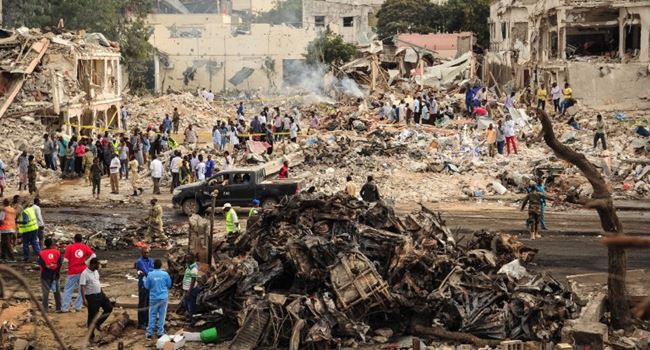International
US air strike on Somalia killed farmers, not militants, Amnesty Int’l claims

Human rights group, Amnesty International says an investigation has revealed that an air strike carried out by the US in Somalia in March, killed civilians and not militants as reported by the US Africa Command (Africom).
Amnesty International says the farmers numbering up to three were returning to their homes in Mogadishu and Leego and Yaaq Bariwayne in Lower Shabelle, when their vehicle was targeted.
The rights group said the victims had no ties with Islamist militant group al-Shabab and also blamed the US for failing to investigate claims that the victims were not linked with militants.
Eleven people interviewed including co-workers and family of the men killed “were adamant that none of the men was a member of al-Shabab,” it added.
READ ALSO: Saudi ignores plea by WHO, bans pilgrims, from DRC, 3 other countries over Ebola scare
“It’s bad enough that the US Africa Command appears not to know who its air strikes are actually killing and maiming in its secretive war in Somalia,” Abdullahi Hassan, a Somalia researcher for Amnesty, said in a statement.
Africom said in March that its assessment had determined that the air strike had “killed three terrorists” and it was aware of reports of civilian casualties.
US air strikes in Somalia surged in April 2017 after President Donald Trump declared the south of the country an “area of active hostilities”.
Join the conversation
Support Ripples Nigeria, hold up solutions journalism
Balanced, fearless journalism driven by data comes at huge financial costs.
As a media platform, we hold leadership accountable and will not trade the right to press freedom and free speech for a piece of cake.
If you like what we do, and are ready to uphold solutions journalism, kindly donate to the Ripples Nigeria cause.
Your support would help to ensure that citizens and institutions continue to have free access to credible and reliable information for societal development.
























